Top 10 eCommerce Analytics Software to Boost Sales in 2024
Summer Nguyen | 09-16-2023
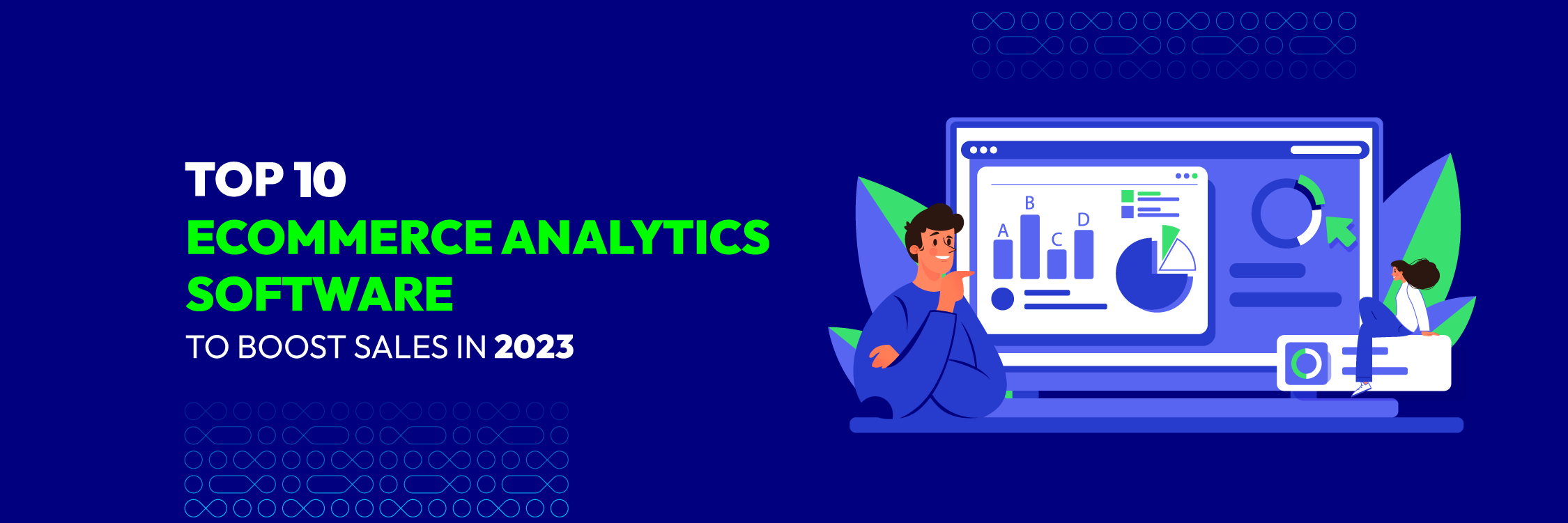

The Most Popular Extension Builder for Magento 2
With a big catalog of 224+ extensions for your online store
In the ever-shifting tides of ecommerce, a silent revolution is shaping the path to prosperity. The key? Insights drawn from data – a currency more valuable than ever in 2024. As businesses strive to outpace the competition, a select set of tools has emerged, each holding the potential to illuminate the shadows where opportunities lie. This article is your compass to that uncharted territory, introducing you to the covert architects of growth. Join us as we peel back the layers, revealing the essence of the top 10 ecommerce analytics software and their transformative influence on the digital marketplace.
Prepare to journey into the future of commerce – where success whispers its secrets through data’s delicate symphony.
Let’s embark on this voyage of discovery.
What is eCommerce Analytics?
Ecommerce Analytics refers to the collection, measurement, analysis, and interpretation of data related to online shopping and transactions. It involves tracking various metrics and key performance indicators (KPIs) to gain insights into the performance and effectiveness of an ecommerce website or platform.
The goal of ecommerce analytics is to understand customer behavior, optimize marketing strategies, improve user experience, and ultimately drive sales and revenue growth.
Here are some of the key aspects of ecommerce analytics:
- Sales and revenue tracking
- Conversion rate analysis
- Customer behavior analysis
- User experience optimization
- Marketing campaign effectiveness
What to do with your analytics data
Boost your conversion rate
Ecommerce platforms experience significant visitor traffic, but gauging the number of visitors who transition into customers holds paramount importance.
The conversion rate signifies the proportion of visitors who become customers on an online store.
Conversion rates yield valuable insights into a website, encompassing aspects like website engagement, optimization for conversions, and product performance.
Efficiently enhancing conversion rates becomes pivotal for driving up sales, revenues, and Average Order Value (AOV). Streamlining ecommerce conversion rates involves employing a user-friendly website design, rectifying technical glitches, and leveraging ecommerce analytics software to identify customer exit points and enhance overall user experience.
Precise tracking of conversion rates on a granular level proves indispensable. Establishing conversions based on channels, product categories, and campaigns provides insights into high-performing products and channels.
Calculation of the conversion rate entails dividing the total number of orders by the overall traffic, then multiplying by 100.
Using platforms like Google Analytics, you can harness data to enhance your Conversion Rate Optimization (CRO) efforts. By examining customer behavior, you have the ability to monitor crucial metrics, including the performance of your marketing funnel.
Additionally, you can uncover the count of users who abandon their shopping carts and the volume of visitors who engage with products but refrain from proceeding further. Armed with analytics insights, you can readily experiment with diverse copy, images, and checkout page elements to enhance your conversion rates.
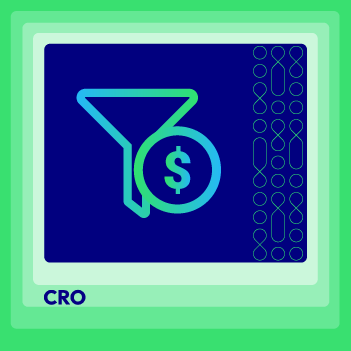
Improve the user experience, boost sales, and ultimately grow your business.
Check it out!Better segment your audience
Understanding your audience is the cornerstone of targeted marketing, and ecommerce analytics software equips you with a precision tool for audience segmentation. By mining demographic data, browsing patterns, and purchase histories, businesses can categorize their customer base into distinct segments, each with unique preferences.
For example, an electronics store might discover that a segment of its audience consistently engages with gaming peripherals. Armed with this knowledge, the store could create tailored email campaigns showcasing the latest gaming gear, resonating more profoundly with this audience subset. This targeted approach enhances engagement and nurtures customer loyalty.
An increase of 200% in conversions was observed in a study where campaigns were directed towards well-defined customer segments. This tactic displays its effectiveness across all marketing channels, whether it be through email campaigns or paid advertising.
To enhance user experience
A substantial 50% of customers express their readiness to invest extra for an improved online shopping journey. User experience (UX) holds a paramount position in the digital realm, and refining it becomes possible through the application of ecommerce analytics software. By meticulously examining metrics like page loading durations, depth of scrolling, and rates of exit, enterprises acquire valuable insights into the navigational patterns of users on their websites.
Consider a scenario where an online store specializing in gadgets observes a substantial rate of users leaving a particular product page. An analysis driven by data might uncover the absence of crucial information in the product description or an inadequacy in effectively showcasing the product’s attributes through images.
With this comprehension at hand, the store can optimize the page by incorporating exhaustive details and high-quality visuals. As a result, users will be greeted with a more captivating and informative experience.
The Top Analytics Tools for ecommerce
1. Google Analytics

Google Analytics stands as a highly renowned ecommerce analytics software, used on approximately 38 million websites, catering to a broad range of actionable insights without charge, serving as an excellent foundational resource for any ecommerce venture.
Additionally, it incorporates a component known as Google Analytics Enhanced Ecommerce, presenting ecommerce entrepreneurs with sophisticated analytical capabilities. This functionality empowers marketing teams to effortlessly monitor traffic flow through each stage of the sales funnel.
Use Google Analytics to:
- Uncover the origins of your website traffic and comprehend the conversion patterns of these visitors.
- Identify instances of drop-offs, including occurrences like abandonment of shopping carts.
- Ascertain the web pages that register the highest bounce rates, as well as those that effectively engage visitors for extended periods.
One primary concern is the potential for data overload. The abundance of data can lead to information overload, making it difficult to extract meaningful insights. Setting up Google Analytics can be complex, especially for those unfamiliar with technical aspects. Privacy concerns arise due to extensive user data tracking, raising compliance issues under regulations like GDPR.
Data sampling, employed for large datasets, can compromise insights’ accuracy. Additionally, Google Analytics provides historical data only from setup, limiting long-term trend analysis. The prevalence of ad-blockers can hinder accurate data collection by preventing tracking scripts from loading.

Google Analytics 4 for Magento 2
A clear insight into shopping and behavior of customers with 5 advanced reports
Check it out!2. Kissmetrics
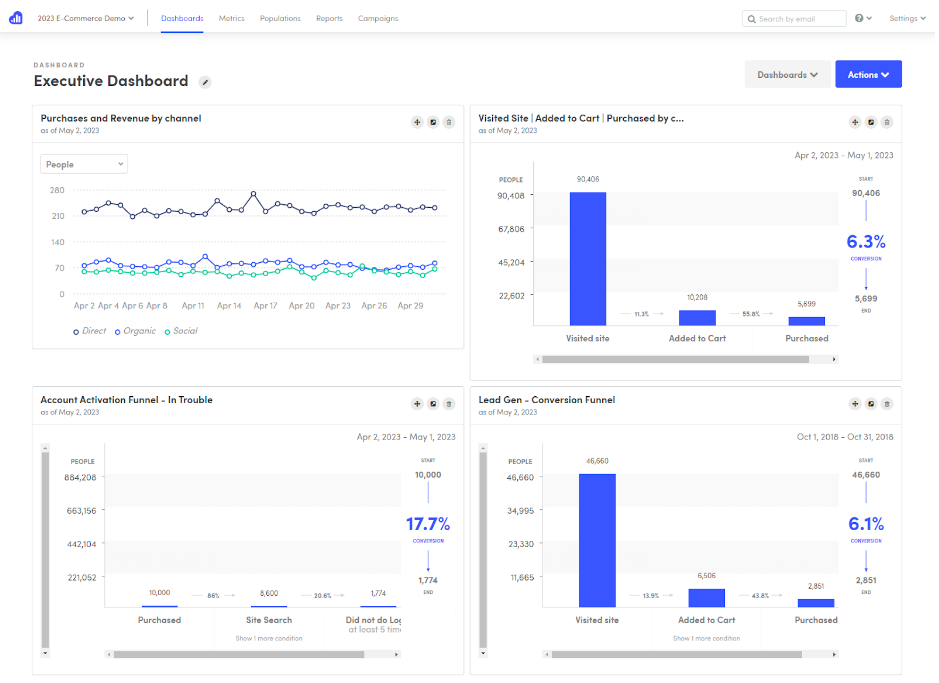
Kissmetrics is a premium analytics solution crafted for online businesses with monthly sales between $500,000 and $5M. Starting at $299/month, it, along with Woopra and Mixpanel, tracks individual customer actions and data.
Kissmetrics surpasses Google Analytics in sophistication, making it an ideal choice for ecommerce marketers seeking a comprehensive range of metrics. It enables you to uncover metrics such as the average revenue per individual, the conversion rate from visitors to purchasers, and the conversion rate from cart to purchase.
This platform allows you to delve into the behavior of individual customers while also pinpointing the most effective marketing channels. Leveraging Kissmetrics’ data empowers you to enhance your email campaigns, conduct A/B testing for marketing strategies, and refine your website’s bounce rate through the implementation of pop-up boxes and notifications.
With its ability to unveil insightful data at every stage of the customer journey, this ecommerce analytics software becomes a catalyst for optimizing ecommerce strategies with ease.
Affordability might be a concern for some teams considering this tool. For those with the financial resources, it can play a pivotal role in business expansion. However, due to the absence of a free trial, exploring a demo becomes imperative to ascertain its suitability for your needs.
3. Hotjar
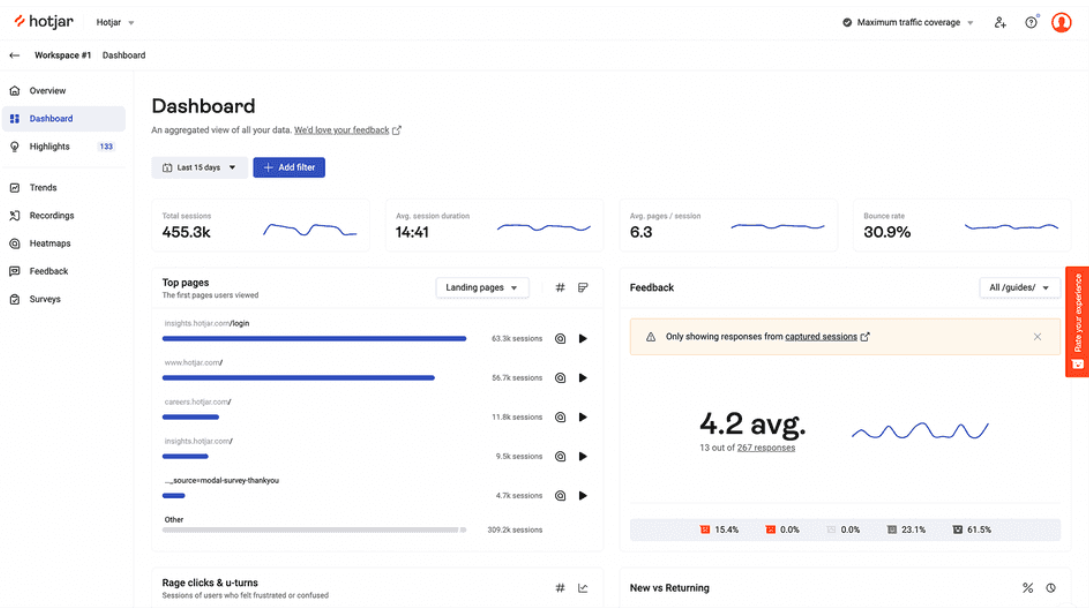
Hotjar stands out as a widely embraced behavioral analytics platform utilized by over 1 million websites across more than 180 countries. Operating under a free-forever model, Hotjar’s plan encompasses all five tools and allows tracking of up to 35 daily sessions.
The suite includes:
- Heatmaps: Visualize visitor interactions using click, movement, and scroll maps to discern areas of focus and neglect.
- Recordings: Gain insight by watching replays of individual visitor sessions to understand their navigation through your entire store.
- Surveys: Extract valuable information by posing queries to comprehend conversion triggers or barriers to purchase.
- Feedback: Gather insights by collecting feedback to evaluate the functionality of key pages.
- User Interviews: Dive deeper into understanding by engaging in one-on-one conversations to gain in-depth feedback from current or prospective users.
However, if you’re seeking a comprehensive solution that integrates with Google Analytics, Hotjar might not be the suitable choice since it doesn’t offer such integration.
4. Woopra
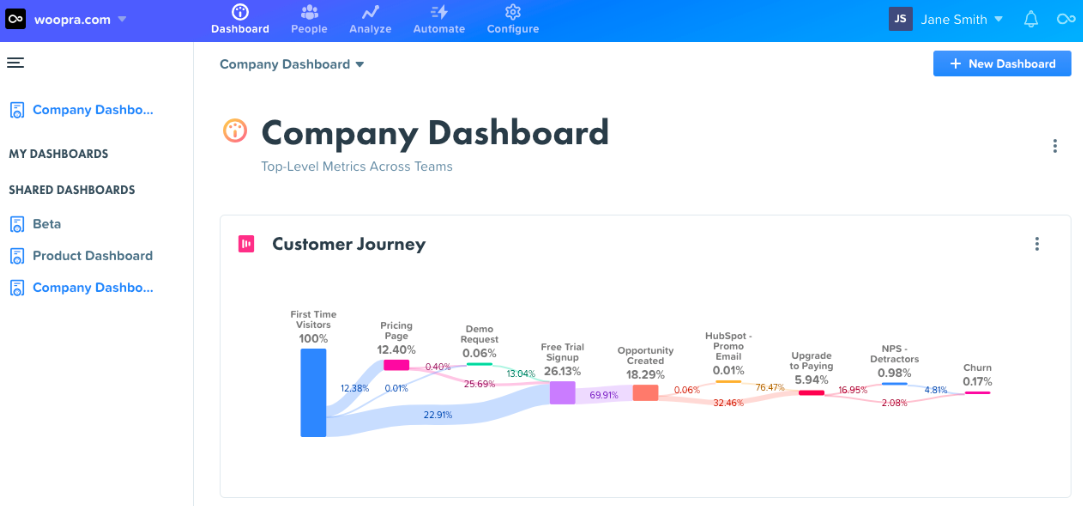
Woopra stands as advanced customer journey and ecommerce analytics software, offering a no-cost plan that allows tracking of up to 500,000 actions per month. Woopra systematically gathers data on each customer interaction within your store.
Woopra offers reports on customer journeys, enabling the enhancement of every facet of the customer experience. The tool aids in diminishing the average cart abandonment rate and elevating customer retention.
Woopra delves deep into every aspect of the customer journey, providing insights such as the typical time taken by customers to make a purchase or abandon the site across the sales funnel. It allows analysis of specific process segments, such as payment addition or purchase completion, to identify areas in need of enhancement.
On the downside, this tool might be costly for small-scale ecommerce businesses that require more than the confines of the free plan. Depending on your requirements, a more cost-effective alternative might be preferable
5. Shopify Analytics

Shopify Analytics, the inherent ecommerce tool accessible to all 4.5 million Shopify stores, holds significance. Shopify Basic users enjoy access to most Shopify Analytics reports without charge; however, more advanced and tailored reports are confined to higher pricing tiers.
Utilize Shopify Analytics to amplify your ecommerce venture by:
- Monitoring essential quantitative ecommerce metrics such as store sessions (indicating traffic), the online store conversion rate, average order value, and the rate of returning customers.
- Comparing the performance of diverse sales channels, even including in-person transactions if you’re utilizing the Shopify Point of Sale (POS) app.
- Analyzing the origins of visitors based on region or social media platforms.
Unfortunately, Shopify analytics often provide partial and somewhat imprecise insights, particularly concerning crucial metrics like Average Order Value (AOV) and Customer Lifetime Value (LTV). The absence of these reports provides only a superficial understanding of your sales, lacking the depth needed to uncover avenues for increased sales and sustained consistency.
6. Matomo
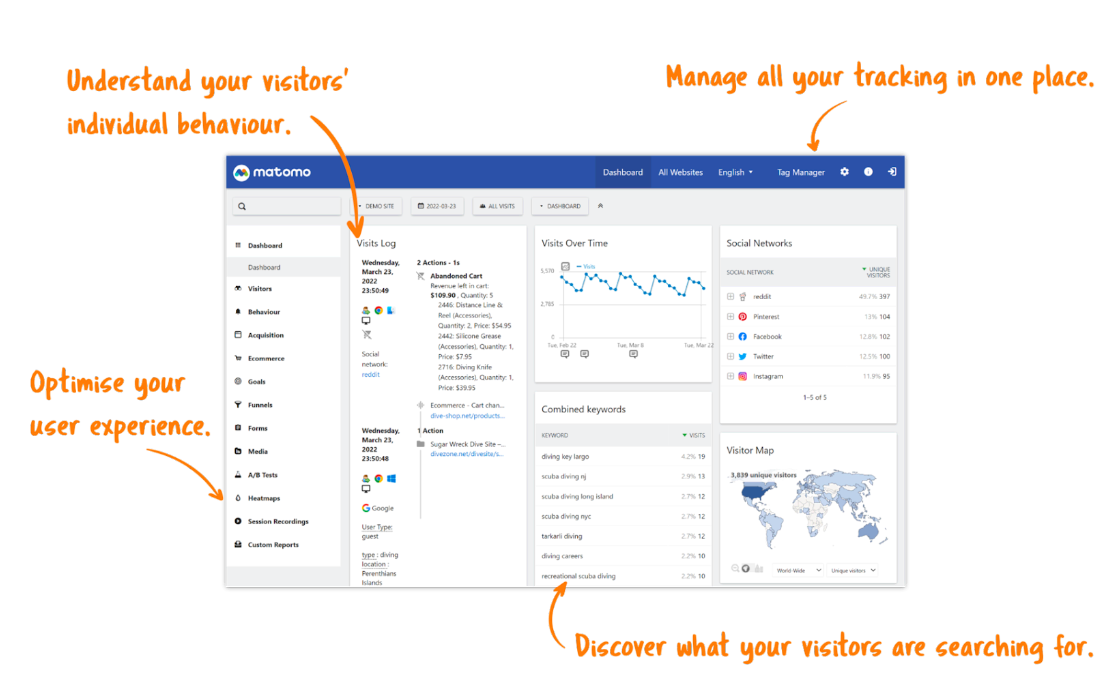
Matomo serves as a commendable Google Analytics alternative, particularly for those with proficient technical skills. The tool’s highlight lies in granting you control over your data and safeguarding users’ privacy.
Matomo seamlessly integrates with ecommerce platforms, including WooCommerce and Shopify. This integration enables convenient access to ecommerce Key Performance Indicators (KPIs), encompassing average order value and conversion rates.
Additionally, setting up automated reports for abandoned shopping carts is possible. Matomo also furnishes detailed sales reports segmented by factors like geolocation, marketing channel, and product.
Drawbacks
However, it’s worth noting that this ecommerce analytics software’s interface might not be as user-friendly, and capitalizing on its cost efficiency entails hosting all data on your personal server, demanding a certain level of technical proficiency.
7. Crazy Egg
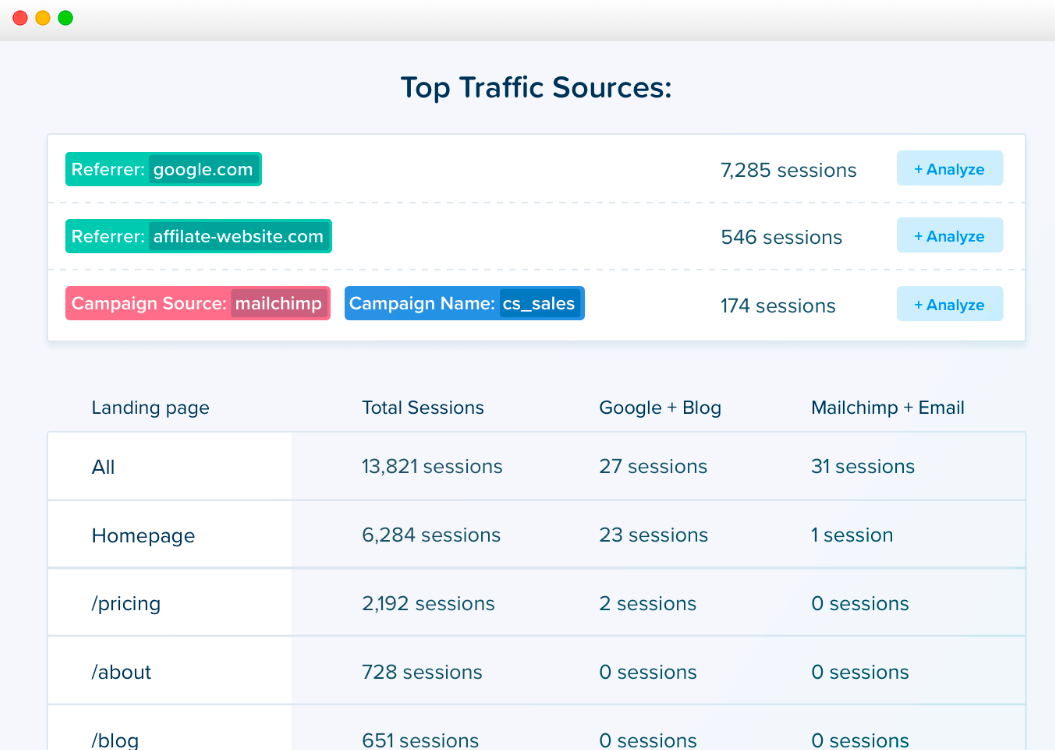
Crazy Egg originated as a heat maps tool, but swiftly evolved into a highly sought-after Shopify app equipped with all the essentials to enhance your site’s conversion rate.
Crazy Egg aids in:
- Identifying customer engagement hotspots and areas that might be overlooked through heat maps.
- Visualizing visitor clicks on your website in distinct colors, revealing their traffic source (Crazy Egg Confetti). This offers an insightful view into critical customer behaviors on your site.
- Assessing the positioning of your Call-to-Action (CTA) buttons using scroll maps.
- Crazy Egg proves a robust solution for comprehending how online customers engage with your website. Armed with this data, you can implement improvements and conduct A/B tests to elevate your ecommerce conversion rate.
Nevertheless, it’s worth noting that there are no available integrations with A/B testing tools, potentially requiring additional effort on your part.
8. Optimizely
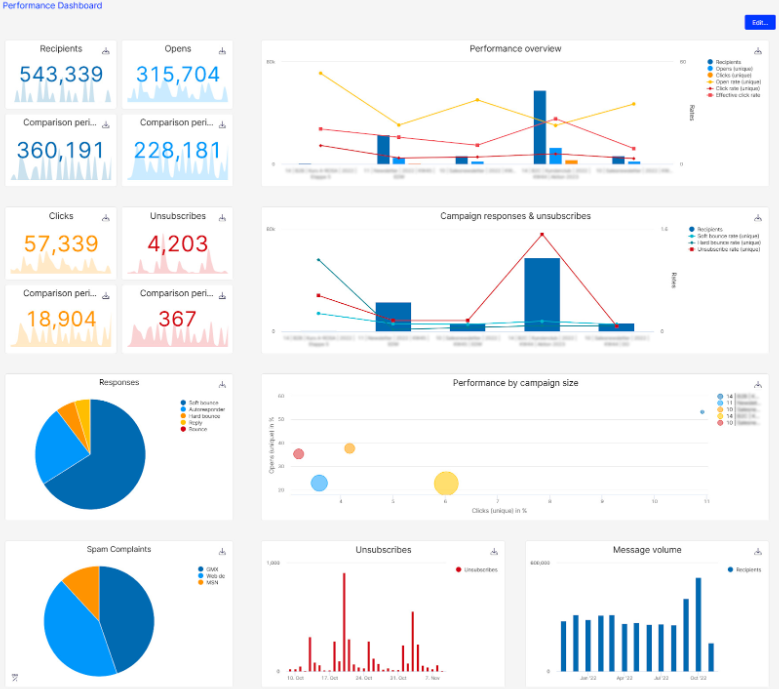
Looking to curate a more personalized shopping experience for enhanced success? Look no further than the features offered by Optimizely. This ecommerce analytics software revolves around A/B testing and optimization, crafting an authentic shopping journey akin to having an A/B testing specialist and an advanced platform rolled into one.
Optimizely’s Web Experimentation tool boasts a no-code editor that simplifies A/B test setup for content improvement on your site. Meanwhile, through the Full Stack tool, you can swiftly introduce novel features. By harnessing customer data, you can pinpoint the most effective variations. Additionally, you can experiment with chatbots and checkout flows to effectively minimize cart abandonment.
Customization options allow you to individually acquire Web Experimentation and Full Stack based on your needs or choose a subscription that encompasses both. It’s important to note, however, that using Optimizely might demand a substantial investment of time. Some users have also observed that the software’s pricing tends to lean towards the higher end.
9. Glew.io
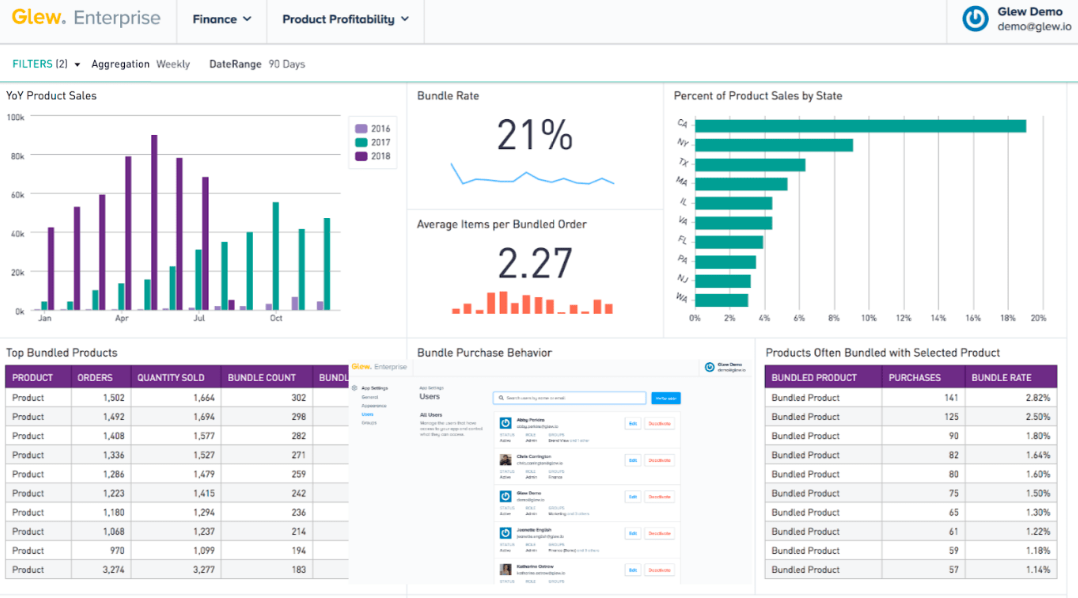
Glew emerges as a comprehensive multichannel ecommerce analytics solution, featuring a complimentary plan for monitoring up to 20 metrics. Similar to Kissmetrics, this ecommerce software delivers potent insights that span your entire business landscape.
- Monitor sales performance across multiple platforms, encompassing your website and marketplaces.
- Access crucial key performance indicators.
- Generate comprehensive reports.
- Analyze the performance of your top-selling products.
- Effortlessly view all distinct customer segments.
Glew.io enhances audience segmentation for both email marketing campaigns and advertising endeavors. It extends to advanced audience reports, sourcing data from social media ads.
Yet, Glew.io exhibits a degree of complexity, necessitating a learning curve for many users. However, if your requirements involve intricate reports on business performance, Glew.io stands as one of the top-tier options available.
10. Supermetrics
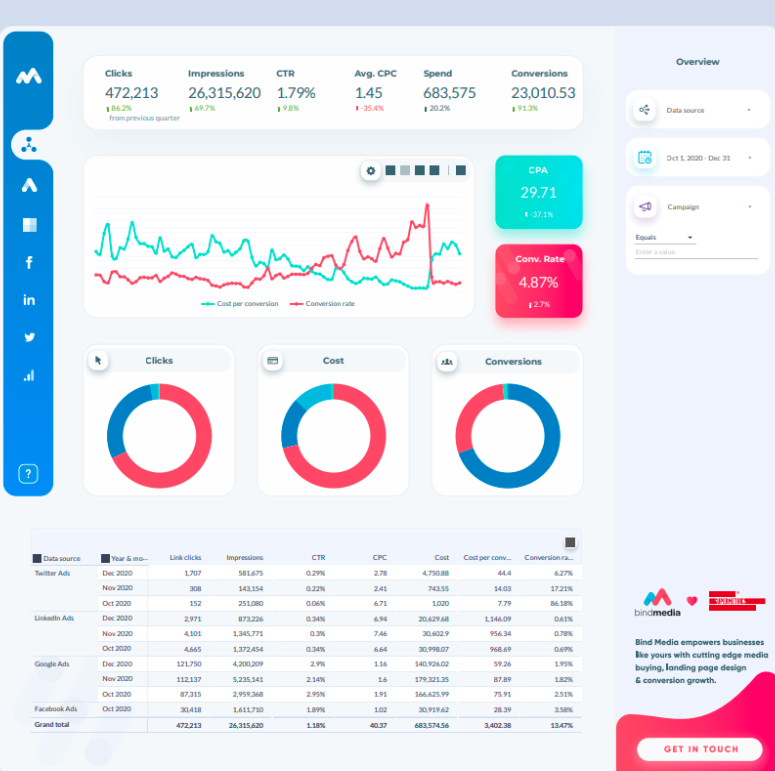
Supermetrics serves as a simplified counterpart to Glew, offering effortless integration of all your ecommerce data and presenting it through customizable reports. This ecommerce analytics software effortlessly gathers data from diverse sources such as social media ads, Shopify, online marketplaces, email tools, and even SEO platforms.
With Supermetrics, you can evaluate the impact of your marketing campaigns on your revenue. Automation features allow your data to refresh automatically, while scheduled emails ensure a continuous stream of reports.
If your aim is to allocate more time to optimizing your marketing materials, Supermetrics proves to be a valuable asset for your ongoing marketing endeavors.
The sole drawback is that Supermetrics does not retain data, meaning that if you intend to track trends, you will need to manage this information elsewhere.
Recap
Running an ecommerce business is no easy feat, proprietors are in a constant struggle to augment online sales and revenue. Enhancing ecommerce Key Performance Indicators (KPIs) is a laborious task, yet the right data analytics tools simplify comprehending data, gauging KPIs, and strategizing for expansion.
Ecommerce analytics software play a pivotal role in addressing queries that span your entire business landscape, from optimizing customer experience to ongoing marketing campaigns.
If you’re at the helm of a fashion-centric ecommerce store, you can now pinpoint the tools that offer the precise data you seek. Moreover, you’ll identify the tools that can furnish insights to amplify your conversion rate, enhance user experience, or refine audience segmentation.
Leverage the data sourced from the aforementioned ecommerce analytics tools to construct a growth blueprint for your enterprise. Establish objectives grounded in the collected data and consistently assess your metrics to gauge alignment with these business expansion goals.
Above all, embrace a culture of experimentation - incessantly test and iterate. Instituting an environment of experimentation within your marketing team promptly can lead to greater triumph.



